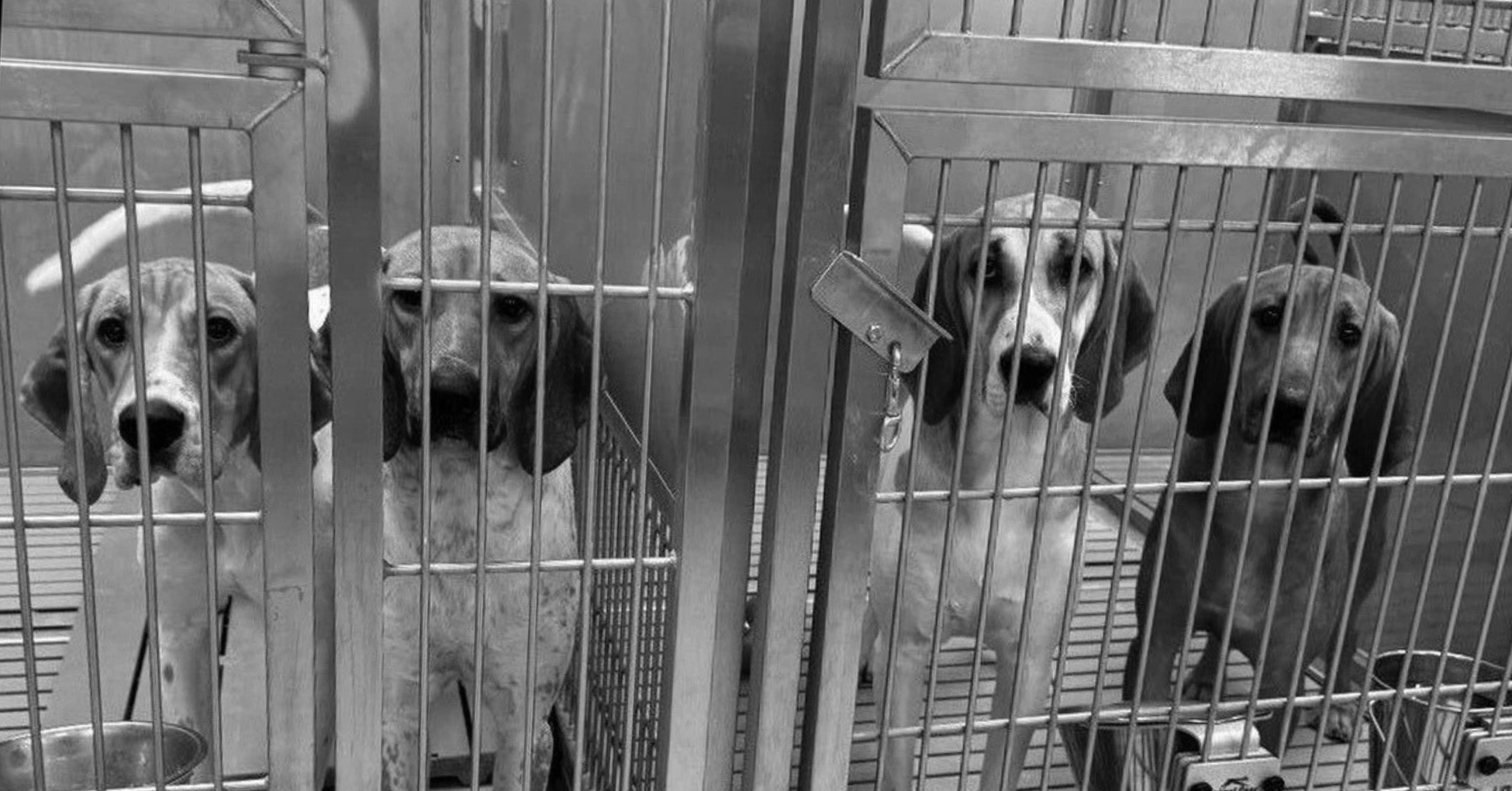
On National Dog Day, we are meant to “celebrate all dogs” — and this must include the tens of thousands locked inside laboratories.
Last year, we broke down the “lab dog” lie. This year, it’s splashed across headlines — and more of us are finally seeing what’s been hidden in plain sight.
From Ridglan Farms’ national supply pipeline, to Wayne State’s killing of Dog 3002, to St. Joseph’s Hospital in Canada discontinuing some dog experiments after a graphic expose and resulting public outcry — the vignettes are adding up and forcing the industry to defend itself.
The defense? Lies and deflections, as always.
The Vice President of Research and Scientific Director of St. Joseph’s — recorded shortly before parting ways with the hospital, post-exposé — told her staff that the dogs whose torture and killing she oversaw were “born” to be . . . well . . . tortured and killed.

Wrapping her statement in the requisite spin, she said:
“The animals used in this research, we all know, they are heroes, born and bred to serve in research…These dogs wouldn’t be alive if it weren’t for this work. They were born to do this work.”
Heroes, born to “serve”? No.
Victims, by design. Yes.
As Dr. Charu Chandrasekera — whose advancement of non-animal methods Rise for Animals has been proud to support — puts it:
Calling dogs “heroes” who were “born to do this work” is a moral inversion. It’s not destiny, it’s design,’….
Purpose-breeding is not a permission slip for violence and exploitation — it’s just the industry’s blueprint for it.
The “logic” runs like this: we brought them into existence to hurt them; therefore, we are justified in hurting them.
That’s not ethics. That’s predation wrapped in propaganda.
It’s also a play on a familiar industry refrain we’ve previously unpacked: the ridiculous fantasy that animals voluntarily “give” their lives to human science. Here, the lie’s been rebranded: they don’t “give,” they “serve.”
But serving, just like giving, must require choice, consent, intention — none of which exists here.
For St. Joseph’s dogs, “service” almost certainly meant being:
- born at a place like Ridglan Farms,
- shipped to St. Joseph’s,
- confined to barren cages,
- subjected to loud music to drown out their voices,
- “scared” and “alone for 23 hours every day” — except on days when they were subjected to “three-hour-long heart attacks,”
- killed,
- piled onto one another,
- stuffed into garbage bags,
- left inside “massive barrels in the freezer.”
Though the industry wants to blur voluntariness and consent into commodification, confinement, degradation, and suffering, it can’t be done — and those inside the labs know it.
Indeed, all their victims actively, desperately, and continuously resist their own subjugation.
Dogs resist, too, of course — though tragically, they are often chosen just because they may resist less than others.

A former vivisectionist admitted that dogs “make obedient victims,” who “are happy to see you, even if you are coming to inflict suffering and death,” because they view “ . . . any contact with humans” as “preferable to sitting alone in their kennel….”
Dogs have been bred to let humans have their way with them — and have been rendered so desperate for kindness and companionship that they will greet their tormentors.
That’s part of the hideous truth that the industry doesn’t want us to see.
When we do, the industry retreats into paternalism.
The same St. Joseph’s leader was recorded telling her staff that research protocols “are not meant for the public because the public doesn’t understand the science.”
Not only do Canadian regulations require plain language summaries for the likes of the non-scientist public, but experts have already called out this common industry punt:
Arguing that opponents or outsiders do not understand the need to kill animals, while portraying the act of doing so in a positive light, is a common strategy, deployed . . . by pro-research organizations….
And, Dr. Chandrasekera has already dealt its death blow:
Saying the public ‘doesn’t understand the science’ is a deeply paternalistic dodge — it assumes ignorance rather than admitting the public might understand perfectly well and reject it. If your work can’t withstand public scrutiny, the problem isn’t the public.

Bottomline: The industry is gaslighting us . . . but we’re all catching on now.
Ridglan Farms’ sales are slowing and it is being investigated for animal cruelty.
Dog 3002’s story now lives with us.
And, St. Joseph’s backpedaled after we saw — and, need we say, understood — what was being done.
More and more of us are seeing the truth and rejecting the industry’s lies — and, today, we can do that by celebrating all dogs.
We do that by rejecting the “lab dog” lie”: There are no “lab dogs.” Only dogs harmed and killed in labs.
And, we do that by working together to set every one of them free.
Your call to action: Help shut down Ridglan Farms, one of the nation’s largest suppliers of “lab dogs.”
Share this story on X or Bluesky.
Or copy, paste, and share this link anywhere:
riseforanimals.org/news/lab-dog-lie